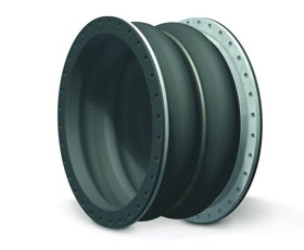Industrial operations demand components that perform reliably under extreme conditions. Hidden within complex piping systems, bellows serve as unsung heroes protecting expensive equipment from catastrophic failure. Without proper expansion joints, thermal cycling and mechanical vibrations can destroy even the most robust installations, leading to costly shutdowns and potential safety hazards.
Modern flexible hose manufacturer solutions recognise that expansion joints require precise engineering to handle demanding applications. Advanced manufacturing techniques create bellows capable of withstanding pressures exceeding 1000 PSI whilst maintaining flexibility across temperature ranges from -200°C to 800°C. These specifications ensure reliable performance in environments where traditional rigid connections would fail within months.
Ditec bellows represent a sophisticated approach to managing mechanical stress in industrial piping systems. Their multi-layered construction incorporates corrosion-resistant alloys designed specifically for harsh chemical environments. This engineering excellence translates into extended service life, reduced maintenance requirements, and improved overall system reliability across diverse industrial applications.
Understanding Ditec Bellows Design and Function
- Advanced Engineering Principles: Ditec bellows utilise corrugated metallic structures that compress and extend in response to system movements. The corrugations distribute stress evenly across the component, preventing fatigue cracks that commonly develop in rigid connections. This design philosophy ensures longevity even under constant thermal cycling conditions.
- Material Selection and Construction: Premium stainless steel grades provide exceptional corrosion resistance whilst maintaining structural integrity. Specialized welding techniques create seamless joints that eliminate potential failure points. The manufacturing process includes rigorous testing protocols that verify performance specifications before installation.
Critical Benefits Delivered by Quality Bellows Systems
- Vibration Absorption Capabilities: Mechanical vibrations from pumps, compressors, and turbines can propagate throughout piping systems, causing premature wear and potential failures. Bellows isolate these vibrations, protecting sensitive equipment and reducing maintenance costs. This isolation extends component life by preventing stress concentrations at connection points.
- Thermal Expansion Management: Temperature fluctuations cause pipe expansion that can generate enormous forces if constrained. Bellows accommodate this movement, preventing pipe buckling and joint separation. Proper thermal management maintains system integrity during startup and shutdown cycles when temperature changes are most severe.
- Mechanical Stress Reduction: Rigid connections transfer loads directly to connected equipment, potentially causing misalignment and bearing damage. Bellows absorb these forces, maintaining proper equipment alignment and reducing wear on rotating machinery. This stress reduction translates into improved efficiency and extended operational life.
- Enhanced System Durability: Quality bellows prevent stress concentrations that lead to fatigue failures in piping systems. By accommodating movement and absorbing shock loads, they maintain system integrity over extended operating periods:
- Reduced pipe cracking from thermal cycling and mechanical stress concentration points.
- Lower maintenance requirements due to decreased wear on connected equipment and fittings.
- Improved safety margins through elimination of rigid connection failure modes.
- Extended service intervals resulting from reduced system stress and component wear.
Industrial Applications Requiring Reliable Bellows Performance
- Power Generation Facilities: Steam turbines and boiler systems experience extreme temperature variations that would destroy rigid connections. Bellows accommodate thermal expansion whilst maintaining pressure integrity essential for safe operation. Nuclear facilities rely on these components for critical cooling system flexibility.
- Chemical Processing Operations: Corrosive environments demand materials that resist degradation whilst providing mechanical flexibility. Specialised alloys withstand aggressive chemicals that would quickly corrode standard materials. Process reliability depends on components that maintain integrity throughout demanding production cycles.
- Marine and Offshore Applications: Salt water environments create unique corrosion challenges requiring premium materials and protective coatings. Bellows must accommodate vessel movement and thermal cycling whilst resisting marine corrosion. These harsh conditions demand components engineered specifically for extended offshore service.
Quality bellows represent essential insurance against costly system failures and safety hazards in industrial operations. The investment in properly engineered expansion joints pays dividends through reduced maintenance, improved reliability, and enhanced safety margins. Contact qualified engineering professionals to evaluate your system requirements and specify appropriate bellows solutions for optimal performance.
Featured Image Source: https://www.jreltd.com/images/r1.jpg
